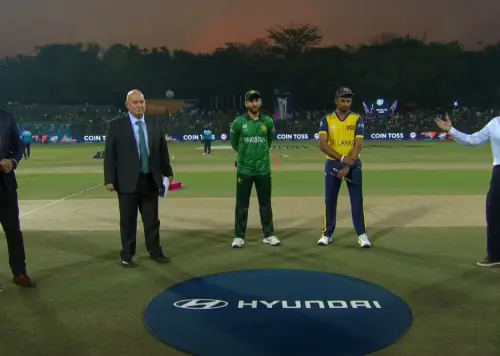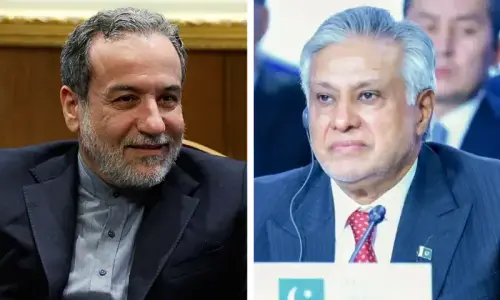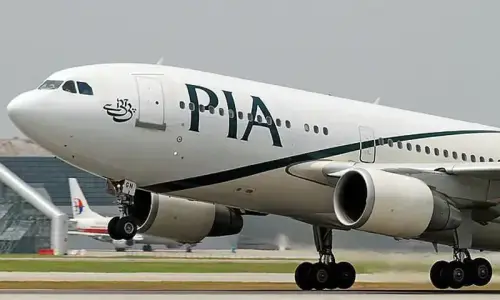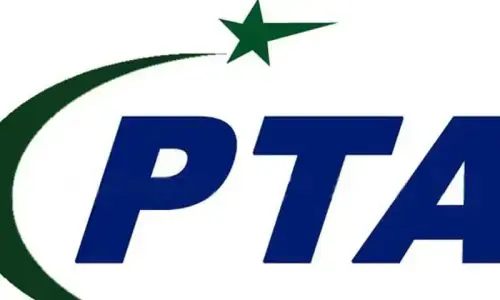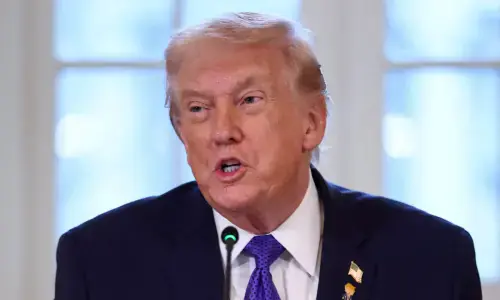
August 2012 marked the 25th anniversary of the arrival of one of the most popular seminal Pakistani pop bands, the Vital Signs.
Apart from Nazia Hassan, the only other Pakistani pop act that has retained such intense interest and popularity after its demise has been the Vital Signs.
But whereas, Nazia’s classic status and popularity were duly propelled by her working relationship with famous British disco producer, Biddu, the Signs had more of a struggle, trying to play and sell the kind of pop that was still a risky anomaly in the Pakistan of the mid and late 1980s.
Today, more than two decades after their formation in 1986 and 17 years after their last album, even the vaguest rumour about a possible Signs reformation generates widespread interest – even among a whole new generation of local pop fans, most of whom were only toddlers when the Signs were first formed.
From the urban underbelly of melody …
The Vital Signs were launched in early 1986 in Rawalpindi by two teens, Rohail Hayatt (keyboards, synthesisers), and Shahzad Hassan (bass).
They were soon joined by Nusrat Hussain (guitar, keyboards). Interestingly, they were not yet called the Vital Signs.
Not even when lead singer Junaid Jamshed, a young engineering student from Lahore, joined.
This was a time when the wily General Ziaul-Haq was reigning supreme as dictator masquerading as a “democratically elected” President with a puppet parliament sanctioning his every move reeking of a Machiavellian brand of so-called “Islamisation.”
Even though the country, at the time was covered by a thick, smoggy façade of strict conservatism and awkward moralistic pretence, its urban underbelly was clogged with raising ethnic tensions, gang violence, corruption and state-sponsored terror partaken by Zia’s various intelligence agencies to suppress dissent against the dictatorship.
Ironically, it was these political and economic tensions and pretensions, power plays and freak economic prosperity that also propelled the gradual expansion of the country’s urban middle and lower-middle-classes.
And it is the youth cultures that emerged from these classes that launched the first shots of the kind of pop culture, scene and music we now call modern Pakistani pop.
Change was in the air. Tensions were running high and something had to give. This was the underlining feeling among the time’s youth. They could not pin-point exactly what or how this change would happen, but the moment Benazir Bhutto returned from exile in mid-‘86 and led a mammoth rally in Lahore, the country’s major urban centres saw a quiet but certain outpouring of brand new pop bands who wanted to sound somewhat different from the time’s top pop scions.
Video:
Before the ‘revolution’: Nazia and Zoheb Hassan performing on the state-owned PTV in 1981. She (along with her brother Zoheb Hassan) was Pakistan’s biggest-selling pop act, even though their album sales and TV appearances were briefly banned by the Zia regime in 1981. The ban was lifted in 1983.
Video:[protected-iframe id="f048f0fc8f6b54edf6512fcaed95ab6d-32060626-33054502" info="https://www.dailymotion.com/embed/video/xw26fi" width="670" height="502" frameborder="0"]
Alamgir was another seminal pop wonder of Pakistan and a star. This is a 1979 song of his.
Come in here, dear boy, have a cigar …Most of the new acts that began appearing after 1986, played at private parties and weddings and at college functions. The Signs by early 1987 were firm favourites in the period’s college function circuit.
The Signs performance also included ambitious and bold covers of vintage Pink Floyd, Rush and A-ha songs, apart from the usual popular Pakistani filmi-pop and Indian film tunes of the time.
The band never took itself seriously, though. Music was just a hobby. But all that changed, however, when they were discovered by ace PTV producer and director, Shoaib Mansoor, a shy, introverted bohemian and a keen music lover.
Wanting to cash-in on the charisma he found in the way the band looked and sounded, Shoaib asked them to record a national song he had written and wanted to air (as a video) on PTV. The song, of course, was “Dil, Dil Pakistan.”
By now the band had started to call themselves the Vital Signs, inspired by the title of a song on the 1981 Rush album, ‘Moving Pictures.’
It was Nusrat Hussain who took the initial shot at composing the song. Shoaib hated the first draft. He wanted it to be a lot catchier. Nusrat had another go and came up with an intro that was appreciated by the other members. Encouraged by it, the others (especially Junaid), lend in their own in-puts and ideas until the tune was completed, approved by Shoaib and recorded.
It was released in the summer of 1987 as a video (directed by Shoaib), in which the Signs are shown singing the song over what looked like the lush hills of Murree.
It was an instant hit. The new generation loved it, as it was the first time ever, since the Zia regime had restricted the wearing of western dress on TV (in 1982-83) that young men in denim, leather jackets and guitars were seen (and allowed) on PTV.
Shoaib had certainly pulled off a smart coup. For years now, ‘Dil, Dil Pakistan’ is regarded to be the ‘second Pakistani national anthem.’
Video:
[protected-iframe id="3c88afceb7a4edc1b423d7c0342509a2-32060626-33054502" info="https://www.dailymotion.com/embed/video/xv9ss" width="670" height="502" frameborder="0"]
The ‘Dil, Dil Pakistan’ video that appeared on PTV in the summer of 1987. Director Shoaib Mansoor spent days trying to convince the censors to allow the airing of this video. PTV thought a video showing young men riding bikes in leather jackets reminded one of hooligans. The video was eventually allowed to air, mainly because of its patriotic lyrics.
But the song’s success was not seen by the Signs as something that would turn them into professional musicians. At least, this is what Nusrat Hussain and Junaid Jamshed thought.Nusrat, training to become an airline pilot, flew out to Karachi and Junaid who wanted to become a professional engineer, didn’t want to have anything to do with music other than just treating it as a hobby.
However, the allure of instant success and the amount of interest Shoaib was ready to invest in the band kept Rohail and Shahzad going. They managed to convince Junaid to hang around for at least the recording of their first album. But as far as Nusrat was concerned, there was no coming back. The band was now without their main composer and guitar player.
Rohail purposed looking around for a “proper guitarist.” And ironically, it was Nusrat who suggested Salman Ahmed (a medical student living in Karachi).
Shoaib’s clout had already gotten EMI (Pakistan) interested in helping the band record their debut album. This saw Rohail, Junaid and Shahzad travelling to Karachi.
The album was recorded at EMI’s studio, but almost all of it was written and composed at new guitarist Salman Ahmed’s residence in Karachi where the band had been lodged.
Shoaib did all the lyrics while Junaid and Rohail shared the bulk of the composing duties. And even though Salman wanted more guitars on it, he agreed to keep the instrument in the background when EMI’s Arshad Mehamood and Shoaib insisted that they should play it safe and straight on the first album.
However, he was allowed to have a go on the rocking “Doh Pal Ka Jeewan” and played rather beautifully on the moody “Yeh Shaam.”

The sound and words of the album are (though indirectly), influenced by an important turning point in the history of the troubled nation.
On August 18, 1988, the country’s ubiquitous military dictator, General Ziaul Haq, was assassinated when a bomb went off on the C-130 plane he was flying in.
Party-based elections were announced for November and by October, thousands of young Pakistanis thronged the streets with huge, spontaneous car rallies, dancing and waving flags, with “Dil, Dil Pakistan” blaring out from car stereos and music stores.
It was a euphoric time, of great hope and anticipation.
Released in early 1989, VS:1 was a massive success. It was a happy album. It reflected well the mood of the time. It was all about hope and the safeguarding of national pride, coupled by the new generation’s respect and liking for individuality, independence and free will.
Audio:
[audio https://i.dawn.com/2013/03/do-pal-ka-yeh-jeevan-hai.mp3]
‘Doh Pal Ka Jeewan’ (From VS-1, 1989)
However, the album’s last two songs were rather enigmatic. The melancholic “Musafir” and “Yeh Shaam,” opted for a more reflective outlook, pleading moments of introversion to come to terms with the other side of the euphoria.
In fact, these two compositions can be seen having the seeds of the deep blue sound and mood the Signs would become known for. These songs are also the first by the Signs on the theme of someone fearing the sudden loss of happiness; a theme they would eventually continue to address in all their albums.
Audio:
[audio https://i.dawn.com/2013/03/mere-bin-tu-hai-musafir.mp3]
‘Musafir’ (1989)
Change changing places …
The debut album’s success saw the Signs rapidly rising towards stardom, leading a wave of fresh new acts that came to the front at the expense of the old stars.
Most of the new guns were a prominent part of the many “youth festivals” that began to do the rounds in Karachi and Lahore, especially after one such show was specially conducted and televised by PTV in late 1989, (‘Music ‘89’).
Directed by Shoaib Mansoor, it went down in history as being Pakistan’s first ever modern pop program; an impressive one-off headlined by Nazia and Zoheb, but stolen by a crackling performance by the Vital Signs.
The Signs greatly admired Nazia and Zoheb. Like all young Pakistanis who entered their teens during the Zia regime, the Signs too looked at the dynamic brother and sister duo whose music helped young men and women cope with the frustrating moral and myopic idiosyncrasies of the Zia dictatorship.
The Signs looked forward to meeting the duo after their performance, only to be given a cold shoulder by Zoheb.
Junaid and Salman were greatly disappointed. They did not realise that their band and the many acts that they were inspiring had already started to be seen as threats by the old guard.
This was true, because by the early ‘90s, almost all top pop guns of the ‘80s had been overshadowed and siphoned out by the new lot.
Festivals apart, the Signs soon went on a whirlwind tour of the country, playing sell-out concerts in Karachi, Lahore, Islamabad and Peshawar.
Some of these, especially the two concerts held in Karachi in late ’89, are still remembered as some of the best by the band.

But during this tour, cracks started to appear in the Signs otherwise shiny armour.
The Signs were made up of four very different personalities. Rohail, in spite of being introverted and not at all interested in getting a lot of attention, was somehow treated as the leader.
And though his quiet disposition helped him cultivate a good balance between artistic aspirations and sound business sense, he did carry a mighty hefty ego and a pretty potent penchant for sly Machiavellian intrigue.
Salman on the other hand, was an outright extrovert. At times crudely so, even though on most occasions he was only trying to speak his mind. He too carried a hefty ego and an almost ruthless ambition to make it big. Things soon fell apart.
Junaid was tricky business; but not in a malicious way because even in those days, Junaid was a volatile character, as emotionally impressionable and contradictory as he is today as a Tableeghi Jamat member.
He went about as a man tormented by a sense of burdensome guilt - guilt about something no one, not even himself was able to define. And even though all the Signs enjoyed numerous fleeting affairs during their early hay days, it was Junaid who ended up stuck in an awkward, tearful romantic fling.
He was close to both Rohail and Salman, but could not defuse the tension between the two. In the end, when the Signs were approached by Pepsi (in late 1990), Junaid decided to side with Rohail when he managed to completely isolate the capricious guitarist.
The Pepsi contract was signed in December 1990, (ironically in the presence of Salman), but by January 1991, Salman was gone.
Mother should I build the wall …
Salman’s idealistic nature bordered on being clumsy and naïve. But it was his passionate focus and ambition to become a big time rock star that first made him launch Junoon with former Jupiters’ vocalist, Ali Azmat and ex-Signs man, Nusrat Hussain.

But to be a popular rock star, Salman was bold enough not to become yet another Signs clone. His idea for long-term relevance lay in introducing socially conscious rock music to the mainstream Pakistani scene.
Many believe that Rohail planed to give Salman the boot in mid-1990 when Rohail (along with Junaid and Shahzad), saw guitarist Rizwan-ul-Haq play with a local band at a concert in Islamabad.
On a number of occasions, Rohail complained about Salman’s “interfering ways” and what Rohail called, “Salman’s Imran Khan complex.”
Pressured by Pepsi to come out with a brand new album, the Signs called in Rizwan as Salman’s replacement.
Rizwan’s more subdued personality and his talent to play a lot more melodically compared to Salman’s riff-friendly ways, was more to the liking of Rohail’s plan to construct the Signs’ sound as a crisp cross between vintage late-80s pop (ala A-ha and Duran Duran), with the aura of ‘70s Progressive Rock (especially Pink Floyd, Yes and Genesis).

Sohaib’s lyrics remained to be reflective musings about lost chances and of urban existential crisis being tackled by a highly romanticised version of the concept of nostalgia.
Junaid was a huge admirer of these lyrics, and sang them with great commitment and meaning. It was as if he was tackling his own awkward emotional crisis of the self with these songs.
And it was these very crisis that saw him suddenly announce his departure from the Signs, right in the middle of the recording process of the band’s second album.
He huffed out of Rohail’s studios in Rawalpindi, returning to study engineering in Lahore, though the bulk of the vocals had already been recorded.
This is precisely why the Signs’ second album, VS:2 is such a departure from the first album’s more upbeat ways.

Rohail was left in a lurch in his studios as he sat down to produce the final mix of the album, unsure of the band’s existence.
The resulting sound emerging from the intra-band turmoil and uncertainty was heavily melancholic and introverted (“Rahi,” “Yaad Kar Na”, “Ajnabi”), suddenly jumping towards thumping anger with the powerful, “Aisa Na Ho.”
Audio:
[audio https://i.dawn.com/2013/03/ajnabi1.mp3]
‘Ajnabi’ from VS-2 (1991)
Video:
[protected-iframe id="7a7dfb0bae5fbf05eef849926344f500-32060626-33054502" info="https://www.dailymotion.com/embed/video/xxfs5v" width="670" height="502" frameborder="0"]
‘Yaad Kar Na’ (1991)
This is also perhaps the Signs’ most political album as well, alluding to the loss of innocence, hope and euphoria that bloomed in 1988 with the demise of the Zia dictatorship and the election of a young Benazir Bhutto as the country’s new prime minster.By 1991 such hope and euphoria lay crushed under the weight of a new round of ethnic and sectarian violence and political corruption. The late ‘80s street dancing revolution was over.
The Signs’ rued this loss with a warning shot on “Aisa Na Ho” and masqueraded their taunting of America’s deceptive ways with third world countries like Pakistan on “Mera Dil Nahi Available.”
Hardly anyone knew that the song’s narrator was a cynical, stereotypical American politician and not a hearty teenage flirt! Cheeky stuff, but pulled off with an ironic sense of humour.
Audio:
[audio https://i.dawn.com/2013/03/aisa-na-ho-yeh-din.mp3]
‘Aisa Na Ho’ from VS-2 (1991). The Signs ruing the slipping away of hope.
Harmlessly passing your time in the grassland away …
With VS:2, the Signs’ music had shown strong signs of maturity and versatility. And even though the album was a commercial success, some fans were not happy with the album’s downbeat sound.
However, it was this album that was able to draw the attention of many “serious minded” listeners.
The success prompted Pepsi to revive its sponsorship deal with the band, raising the stakes enough for the band to, (for the first time), seriously start treating making music as a career.
Junaid made the final break with his ambition of becoming an engineer as the band prepared to go on another gruelling tour of the country. But more importantly, they were now set to become the first modern Pakistani pop act to go on a tour abroad. The United States was the destination.
The tour also changed the way the band looked. No more were they clean-cut Ah-Ha clones, as they let their hair grow, slipped into heavy cowboy boots, Levis 501’s, leather jackets and chunky metal jewellery!

The early ‘90s that saw the emergence of grunge and a revival of interest in ‘70s music and fashion were the instigators.
The change also saw Rohail, Shahzad and Junaid moving to Karachi (Rizwan decided to stay back in Islamabad), as Rohail started constructing a brand new studio in his Karachi apartment.
They entered the studio in early 1993 almost the same time as Junoon did the EMI (Studios) to record their second album, Talaash (the first album, though promising, had bombed in the market).
Pepsi had also raised the stakes for it to meddle in the ways the new Signs album should sound.
They had not enjoyed VS:2’s “depressing tone” and pressurised the band to make the new album sound a lot like the first one. And this time there weren’t to be any songs alluding to politics whatsoever.
However, the general theme of the new songs remained the same. Shoaib again penned songs ruing about lost opportunities and the need to look towards an idealised version of a nostalgic past to counter modern urban existential pangs.
One such song also became the title of the new album: Aitebaar. Built around some marvellous piano playing by Rizwan-ul-Haq, Junaid gave voice to what would become one of the local scene’s finest ballads. And this was also the highlight of the album which was otherwise studded with tunes that were nothing more than a cosmetic exercise in making easy-to-swallow pop music.

Aitebar remains to be the Signs’ weakest album. Highly predictable, it did have its moments, though. But these were too far and in-between.
Audio:
[audio https://i.dawn.com/2013/03/vital-signs-aitebar.mp3]
‘Aitebar’ (1993)
A lot more was changing. A wave of brand new acts had come tumbling in, mostly via Ghazanfar Ali’s weekly pop show, ‘Music Channel Charts’ (Yatagaan, Awaz, Collage, Fringe Benefits, Sequencers, Jazba, Nadeem Jaffery, along with, of course, a rapidly galloping Junoon).
Though still the land’s top pop act, the Signs now had some serious competition.

On the surface they seemed not to be so perturbed. In fact, Rohail produced the first Awaz album, a band that was being tipped by Pepsi to be the next Signs.
It’s another matter that though a commercial success, the album was nothing more than a predictable exercise in one-dimensional boy-pop.
The Signs then toured the country to record the Shoaib Mansoor directed Geetar ’93, a compilation of videos of the Signs’ biggest hits thus far, shot across the four provinces and financed by Pepsi.
Made for PTV (and now available on DVD), Geetar ’93 was an entertaining document of the Signs’ progress as a solid pop act. However, the only thing in those videos that stuck out like a sore thumb was the not-so-aesthetically and strategically placed Pepsi bottles in the videos. They seemed surrealistically ridiculous placed there in songs about broken hearts, emotional isolation and soft existential angst.
1993 was also the year in which the Signs played the most number of concerts. The biggest taking place at the KDA Stadium in Karachi, headlined by the Signs and also consisting performances from the Milestones, Awaz and the newly formed Arsh.
Another note of interest at the concert was the presence of Salman Ahmed in the audience and the fact that it was after this concert that Rohail first started to show signs of agitation regarding his growing dissatisfaction with Rizwan-ul-Haq’s playing.
Run, rabbit run, dig that hole forget the sun …
Rohail wasn’t counting his blessings as far as Rizwan was concerned. He was a pretty competent player. Not flashy but highly melodic and understated. His playing was near perfect for the Signs’ sound.
However, the prospect of getting guitar whiz Aamir Zaki became too good an opportunity to let go. Rizwan was quietly siphoned out (he joined Awaz), and in came the moody and temperamental Zaki.

Pepsi were breathing down the band’s neck to come out with a new album. To compensate, the band released a hurriedly compiled “Best of …” package. Rohail did not want another Aitebar, deciding to construct a sound that was similar to the one discovered on VS:2 but a lot meatier.
Rohail and Zaki wanted it to be like a cross between Floyd, Eagles and Fleetwood Mac.
Much talk (and smoking) took place but little work was done as Rohail also ventured out to try publishing the country’s first music magazine and a possibility of recording actress Atiqa Odho’s debut album.
Rohail seemed to be spending more time planning Ms. Odho’s album than he was in the one coming up for the Signs’.
Already signs of tension and friction between Zaki and Rohail had started to emerge. And then came the announcement that the Signs would be touring the States.
Rohail flatly refused saying that he has a magazine to publish and albums to produce.
Rohail’s refusal did not go down well with Junaid who sided with Zaki’s suggestion of making the tour without Rohail. Which they did.
Ticked off, Rohail announced his departure from the band.
On returning, Junaid reproached Rohail and along-with Shahzad coaxed Rohail to rejoin. The meeting did not have Zaki in it, and when the Signs were interviewed in a TV show in mid-’94, here too Zaki was missing from the line-up.
But Zaki was still there with the band when they finally started work on the new album. The process was broken when the Signs flew to Dubai for a couple of concerts. They were seen embracing each other after the concerts in a show of reviving their trust and mending fences.

The recoding of the new album was again interrupted when the band toured England.
In between shows, Rohail took the band (along-with Awaz’s Asad Ahmed and Junoon’s Ali Azmat), to see Pink Floyd live in London.
Rohail had always wanted a guitarist who could sound and play like Floyd’s David Gilmore. Now, more than ever.
But he was shocked when Zaki came out of the concert severely criticising Gilmour’s playing. This was the final straw. After a heated argument, Zaki was asked to leave.
Some even blamed too much indulgence in hallucinogenic paraphernalia by the band.
Zaki was finally replaced by Asad Ahmed to help the band complete their new album.

It was no secret that Asad always wanted to jump Awaz and join the Signs, but Rohail wouldn’t accept him as anything more than a hired hand.
In early 1995, the Signs finally completed and released their fourth album, Hum Tum.
This was to be the last time the Vital Signs could be seen with their long locks, cowboy boots and denim. Hum Tum also sees Rohail expanding the Floydian ambience and the moodiness that he injected in VS:2 enough to come out clean as one of the local pop scene’s finest producers.
And even though lyrically Junaid Jamshed and Shoaib Mansoor again did well to compliment the album’s Floyd-meets-Eagles aura and VS:2-type moodiness, Hum Tum is really Rohail’s baby.
Audio:
[audio https://i.dawn.com/2013/03/janaan-janaan.mp3]
‘Jana Jana’ (1995).
Audio:
[audio https://i.dawn.com/2013/03/mein-chup-raha2.mp3]
‘Mein Chup Raha’ (From Hum Tum, 1995)

The aesthetic and commercial success of the album wasn’t enough to roll back another happening: Rohail and Shahzad were both emotionally, creatively and, if I may, philosophically, drifting away from Junaid Jamshed and Shoaib Mansoor. Nothing much seemed in common anymore between the two camps.
And though the Signs’ demise was never officially announced, by 1998 when the band were offered a deal by Pepsi for another album, Rohail declined, signalling the folding of what still remains to be one of most important and volatile chapters in the history of Pakistani pop music.

The same old fears …
Junaid had already started his gradual slip (flip?) towards a state of mind which would eventually land him as the puritanical Tableeghi Jamaat’s poster boy, while Rohail and Shahzad decided to shift their energies into producing new acts and advertising jingles.
Many years later, looking back I have no hesitation in also suggesting that Junaid’s band mates, Rohail Hyatt and Shahzad Hassan, and mentor, Shoaib Mansoor, did absolutely nothing to help him tackle the crisis plaguing him and whose solution he ultimately found in the shape of the Tableeghi Jamaat.
There was nothing wrong with him finding solace in the Jamaat, but the problem was that since Junaid had already tasted the fruit of success and fame as a pop star, his need for attention did not evaporate even when he decided to bid farewell to music.
On the contrary, his rather obvious desire to remain in the picture saw him continue to make news by first dipping in and out of music, varying the length of his beard according to where he stood on the subject of music and Islam, and then ultimately, announcing that music was not allowed in Islam.
This is what apparently took both Shoaib and Rohail by surprise and also caused disappointment because both had planned important future projects with Junaid.
Junaid’s conversion was not sudden. It was a gradual, slow and rather painful process, unfolding piece by piece right in front of his band mates and Shoaib Mansoor.
Ironically, he was the hungriest for success and stardom, not only in pop music but also in film and television. This made him one of the hardest working members of the band who actually wanted to continue playing beyond Hum Tum. He is on record as saying that music was his life as he went on to release two impressive post-Signs solo albums.
But more and more he was falling prey (rather willingly) to his frustrations, as his desire to work again with Vital Signs got no serious response from Rohail.
Though his two closest allies in the music business had by now become aware of the growing conservatism in the religious and social ideas held by Junaid, they still couldn’t see through the obvious fact that in front of them was a man spiralling downwards towards a situation in which he would ultimately start questioning their faith.
Even though Rohail’s liberal mindset, tastes and lifestyle always clashed with Junaid’s idea of being an artiste (even though he himself was leading a rather lavish life), this undercurrent eventually turned into open resentment by the time Rohail did come around and agreed to reform the band in 2002 for a special Nazia Hassan tribute concert.
It was interesting to note how Junaid responded to Rohail’s call. Only a few days prior to the concert, Junaid had already announced to the press that he was joining the Jamaat full-time and would quit making music.
In fact, he had been spending his time preaching and being preached at in a congregation in Raiwind, when he suddenly reappeared on the day of the concert flanked by two members of the Jamaat but with his long, flowing beard now trimmed into a neat, stylish goatee.
When asked by the press about his earlier statement regarding his retirement from music, Junaid said that after consulting with some elders in the Jamaat, he has been assured that there was nothing wrong with playing music.
Wearing a T-shirt, denim and with a stylised goatee, Junaid played an excellent set with Rohail, Shahzad and the original VS guitarist, Salman Ahmed.
However, by the end of the concert he looked anguished as he started making his way towards his two Tableeghi comrades waiting in the wings to gather him back.
A common acquaintance of Salman and Junaid told me that Junaid boiled when Salman Ahmed declined his offer to join the Jamaat and he was never happy with the kind of band Rohail wanted Vital Signs to become.
He said Junaid thought that Rohail, who was trying to ring in bands like Pink Floyd and Fleetwood Mac as influences in the Signs’ music, was trying to turn VS into a “druggie” band.
Junaid shared these views with Shoaib as well, and yet the latter saw nothing wrong with the way his protégé was turning out to be.
Junaid has publicly criticised the way Mansoor has portrayed jihadis and Islamic evangelists in his 2007 film ‘Khuda Kay Liye’. He has alluded that it is Shoaib who is confusing the youth about Islam and not him.
But, of course, Junaid’s own confusion regarding the subject is now well documented and his lectures and statements never fail to sound contradictory as he goes about denouncing the material and the ungodly nature of music and showbiz, but continuing his long-standing stint as an expensive clothes’ designer and a naat-reciter. He releases his naat albums through exactly the same immoral promotional and distribution channels used by the pop music counterparts.
After finally deciding to let go of his need for fame and attention through music, he has found almost an equal amount of fame and fortune as a naatkhuaan, televangelist and designer.
Where are they now?






*The blog is based on the many interactions the author had with the band as a journalist between 1990 and 1999.

The views expressed by this blogger and in the following reader comments do not necessarily reflect the views and policies of the Dawn Media Group.










